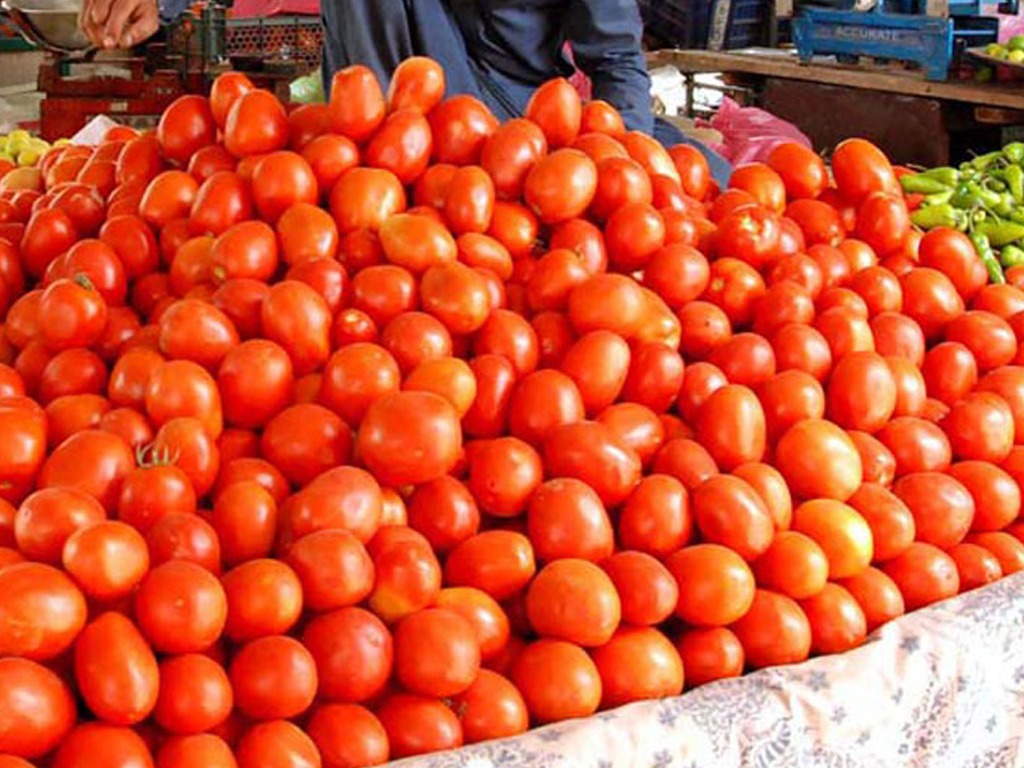Tomato prices in Pakistan have surged to unprecedented levels, with the cost per kilogram now approaching 400 Pakistani Rupees (PKR) in major cities. This sharp rise is intensifying financial pressure on households already grappling with high inflation.
According to recent data from the Pakistan Bureau of Statistics, the capital city Islamabad recorded the highest price for tomatoes at 380 PKR per kilogram. Other major urban centers also saw dramatic increases, with Rawalpindi at 360 PKR, Faisalabad at 350 PKR, and Lahore at 340 PKR per kilogram.
Rising Prices Across Major Cities
The price hike is not limited to Punjab’s largest cities. In Sialkot, Gujranwala, and Multan, tomato prices have climbed to approximately 320 PKR per kilogram. Southern and western urban centers are also affected: Karachi and Peshawar report prices close to 300 PKR, while Sargodha and Bahawalpur are seeing rates around 280 PKR. In Sindh’s smaller cities such as Hyderabad, Larkana, and Sukkur, the price ranges between 240 and 250 PKR per kilogram.
The Bureau of Statistics noted that, on average, tomato prices rose by 88.22 PKR per kilogram over the past week alone. Such rapid inflation in a staple commodity is particularly concerning for low- and middle-income families.
Broader Inflationary Pressures
The surge in tomato prices is part of a wider pattern of inflation affecting multiple food items. Consumers are also facing higher costs for garlic, onions, flour, lentils, milk, cooking oil, ghee, mutton, and red chili powder. Recent reports show Pakistan sees price hikes in 22 essential commodities despite a slight drop in the overall inflation rate. These price increases are adding further strain to household budgets and reducing purchasing power.
However, some commodities have seen stability or slight reductions. Prices of broiler chicken, potatoes, and domestic LPG cylinders have remained steady or declined slightly in recent weeks, providing limited relief to consumers.
Causes Behind the Price Surge
Experts attribute the spike in tomato prices to a combination of inflationary pressures and climate-related disruptions. Recent floods in various regions have worsened Pakistan’s inflation crisis, damaging agricultural crops, disrupting supply chains, and limiting market availability. These factors have created a significant imbalance between demand and supply, pushing prices upward.
Agriculture is particularly vulnerable in Pakistan, where flooding and unpredictable weather have historically affected both the quantity and quality of crops. With tomatoes being a widely consumed vegetable, even minor disruptions can quickly translate into sharp price fluctuations at retail markets.
Impact on Households
For many Pakistani households, the sudden rise in tomato prices adds to an already difficult economic situation. With inflation in essential food items, families may need to adjust diets, cut back on non-essential spending, or absorb higher monthly grocery costs. Analysts warn that if the current trends continue, prices of tomatoes and other key commodities could rise further in the coming weeks.
The government has yet to announce significant measures to stabilize prices, and consumers are increasingly concerned about the affordability of basic vegetables. Retailers, meanwhile, cite high transportation costs, crop shortages, and increased demand as reasons behind the price surge.
Looking Ahead
As Pakistan navigates these economic and environmental challenges, experts emphasize the importance of improving agricultural resilience and supply chain efficiency. Without intervention, staple food prices may continue to climb, further straining household budgets and potentially impacting food security for vulnerable populations.
The tomato price surge highlights a broader issue: inflation in Pakistan is affecting everyday essentials, and the combined effects of climate disasters and economic instability could have long-lasting consequences if not addressed promptly.















